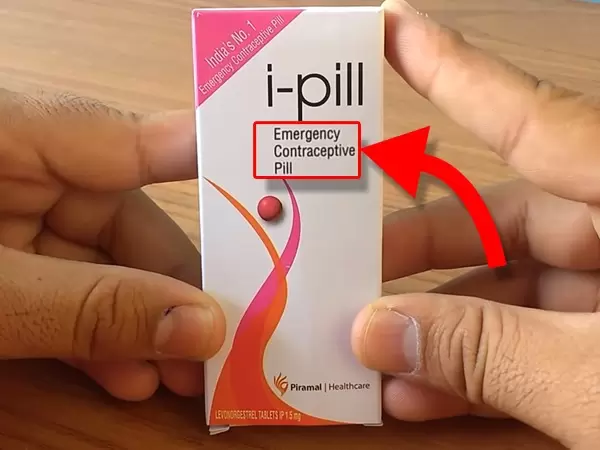I-Pill
The I-Pill is used as an emergency contraceptive tablet to prevent unintended pregnancy in the event of risky sexual behavior or contraception failure. After engaging in unprotected sex, the emergency contraceptive pill must be taken within 72 hours.
How do I-pills function?
A hormone used in emergency contraceptives functions as a synthetic version of the progesterone hormone, which aids in preventing pregnancy. Your regular method of birth control is unaffected. Additionally, ovulation is postponed or prevented as a result of this. I-pills are ineffective after implantation and fertilization have taken place. It is unable to end an already-existing pregnancy.
Effectiveness of i-pill
Depending on how soon after unprotected intercourse it is taken, the emergency contraceptive pill known as the “I-pill” has varying degrees of effectiveness. It is stated to be highly successful, with a success rate of more than 95%, if taken within the first 24 hours. When consumed between 25 and 48 hours, the efficacy falls to 85%. However, the effectiveness considerably declines to 58% or less if given between 49 and 72 hours.
However, people are fallible, and it’s simple to forget or ignore medicines. As a result, every year, 7 out of every 100 women who use emergency contraceptives become pregnant. It is advised that you seek medical attention if you vomit within two hours of taking an emergency contraceptive pill since it may not have been completely absorbed into your system, which could decrease its effectiveness.

Tablets I-Pill Side Effects
A high hormone dose throws off a woman’s regular menstrual cycle, causing irregular bleeding or delayed menses the next month. Some drug users claim to have felt pain, nauseous, and breast discomfort.
Some users of emergency i-pills link them to depression or weight gain. According to a study involving thousands of women, some women who use hormonal birth control gain weight, some women maintain their weight, and other people even lose weight. Additional negative effects include:
- Nausea or diarrhea
- Breast abrasion
- Faintness
- Greater menstrual bleeding or bleeding in between periods
- Tiredness
- Lower-back discomfort or cramps
Period Side Effects of I-Pills
According to studies, taking I-pills frequently can have a variety of negative impacts. During periods, certain common i-Pill side effects may occur.
- As a result of the i-Pills’ disruption of the cycle by causing heavier, lighter, sooner, or later periods than typical, women’s menstrual cycles go through considerable changes. Even the vaginal discharge may undergo a few odd and surprising modifications.
- The period may arrive earlier if an emergency contraceptive tablet is used during the first three weeks of the menstrual cycle. The period may still come on time if the medication is taken during the fourth week, but it may do so with atypical bleeding that is normally heavier than usual. However, there is little to no difference in the timing or volume of bleeding whether taken a few days before or after ovulation.
- The other side effects include weakness, constipation, and body aches, as well as abdominal pain.
Side Effects Of I-Pill On Future Pregnancy
The morning-after pill, also called the “I-pill,” does not affect a woman’s fertility or chances of getting pregnant again. It is safe to use emergency contraception pills whenever necessary.
Limitations on How Old You Can Take I-Pill Tablets
It is suggested that women between the ages of 25 and 45 use this drug. It is not deemed safe for teenagers to regularly use an emergency contraceptive pill for birth control. It is important to keep in mind that young people shouldn’t use them because their reproductive organs are still maturing.

Frequently Asked Questions:
- When should I take my I-pill?
A woman should utilize the emergency contraceptive pill, also referred to as the morning-after pill, to prevent pregnancy in the case of a contraceptive failure, such as a condom shattering or leaking, forgetting to take a tablet or unexpected or forced intercourse.
2. How can I determine if my tablet was successful?
Pregnancy tests are the most reliable way to find out whether the i-pill, commonly known as the emergency contraceptive pill, was successful.
3. Can I get pregnant after using an I-pill?
About 1 or 2 out of every 100 women who utilize emergency contraception tablets become pregnant despite taking the pills within 72 hours of engaging in unprotected sexual activity.
4. If I take an I-pill, do I need to take a pregnancy test?
Although there is a small probability of becoming pregnant after taking an i-pill or an emergency pill, it is best to take a pregnancy test to be sure if you have missed periods.
5. How frequently may I-pill be taken?
In the event of unprotected sexual contact, the emergency contraceptive pill, sometimes known as the “i-pill,” may be used as needed. There is no restriction on the number of times it can be used in a specific period, and it is thought to be safe to use. It is most effective when used as soon as possible after unprotected intercourse, but it is not meant to be used as a routine method of birth control.






